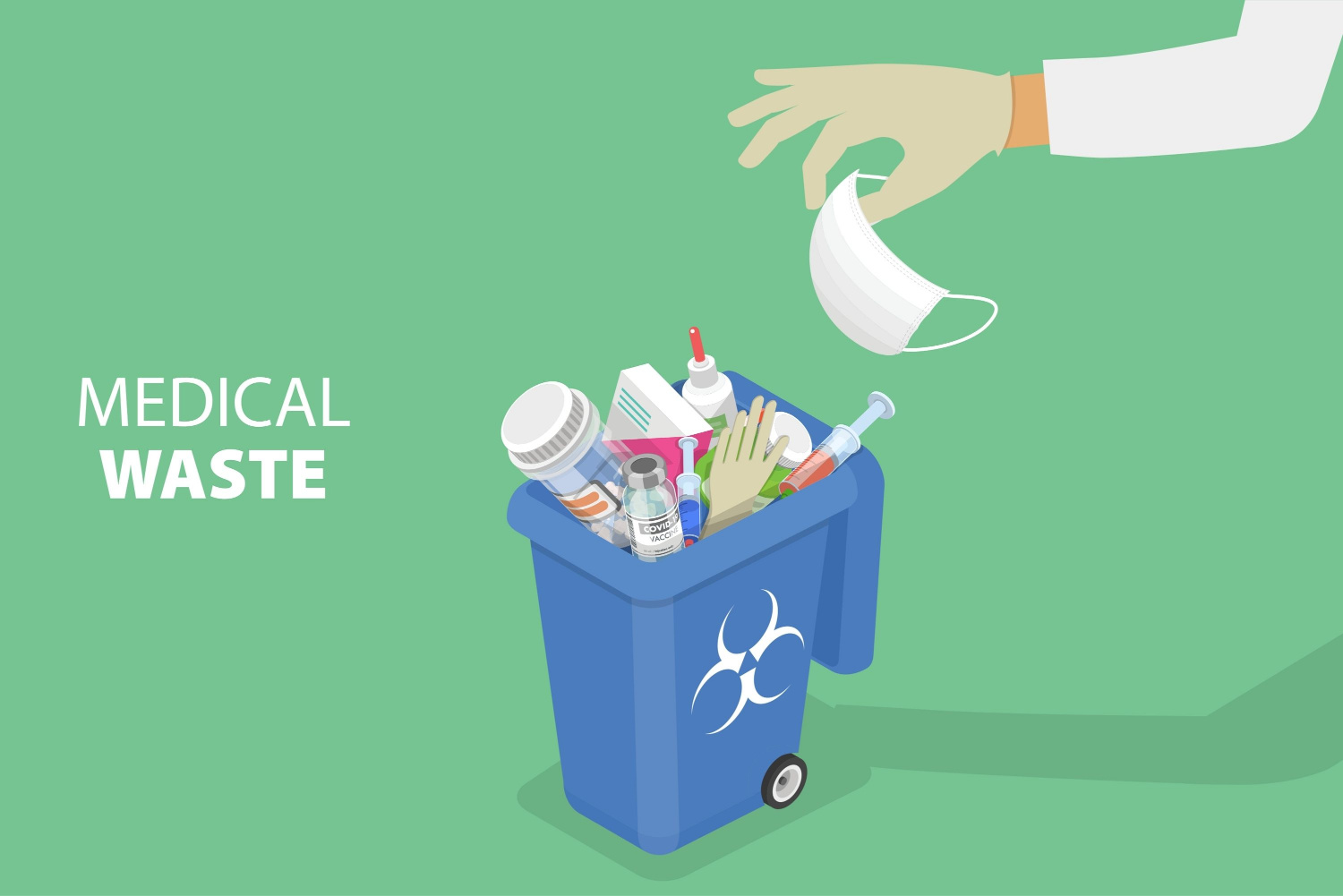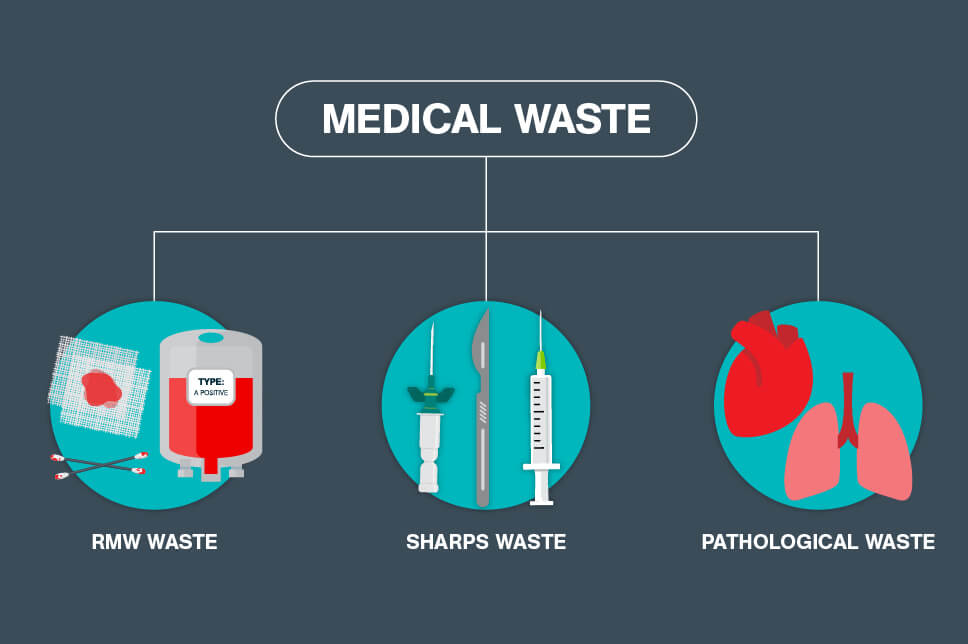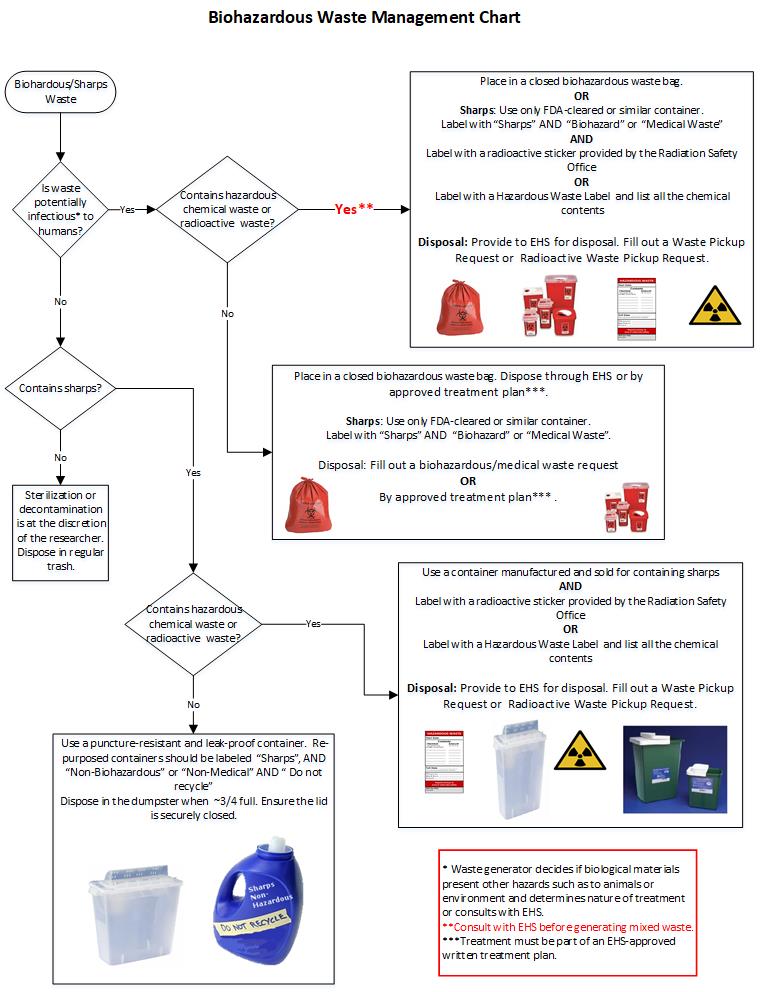Eco-Friendly Solutions for Medical Waste Removal: Prioritizing Security and Compliance
Wiki Article
Guaranteeing Safe Handling and Disposal of Medical Waste
Guaranteeing safe handling and disposal of medical waste is of paramount significance in medical care settings. Incorrect administration of clinical waste can pose considerable threats to the environment, public health and wellness, and medical care workers. This requires adherence to stringent standards and methods for its safe handling and disposal. In this introduction, we will check out the importance of proper clinical waste management, the risks connected with incorrect handling and disposal, along with the standards and strategies that can be implemented to ensure its safe disposal. Additionally, we will talk about the importance of training and education for healthcare professionals in order to maintain a safe and clean health care atmosphere. By complying with these techniques, we can effectively mitigate the potential hazards connected with medical waste.Relevance of Proper Clinical Waste Administration
Correct medical waste monitoring is of utmost significance in ensuring the security and health of healthcare specialists, people, and the basic public. Medical waste describes any waste generated by healthcare facilities during the diagnosis, treatment, or immunization of pets or human beings. This waste can posture major health risks otherwise handled and thrown away appropriately.
Among the primary factors why correct clinical waste monitoring is vital is to avoid the spread of transmittable diseases. Medical waste, such as used needles, contaminated dressings, and biological products, can carry damaging virus. Otherwise handled and disposed of properly, these microorganisms can be transmitted to healthcare workers, clients, waste handlers, and also the public, resulting in the potential outbreak of conditions.
In addition, appropriate medical waste monitoring helps secure the setting - medical waste disposal. Medical waste has harmful materials, consisting of chemicals, pharmaceuticals, and radioactive materials. When not managed appropriately, these materials can infect dirt, water bodies, and the air, positioning a substantial danger to ecological communities and public health
Additionally, effective clinical waste management ensures compliance with local policies and international requirements. Governments and governing bodies have actually established methods and guidelines to make certain the secure handling, storage, transport, and disposal of clinical waste. Sticking to these guidelines is necessary to prevent lawful consequences and maintain the reputation and trustworthiness of medical care centers.
Dangers of Improper Handling and Disposal

Clients can likewise be revealed to these transmittable conditions if clinical waste is not properly thrown away. For example, if contaminated needles or other sharps are not thrown away in designated puncture-proof containers, they might mistakenly prick people, causing prospective infections. Moreover, if clinical waste is not segregated properly, there is a threat of cross-contamination in between different types of waste, further increasing the opportunities of illness transmission.
Incorrect disposal of medical waste can also have destructive results on the atmosphere and the general public. If clinical waste is not treated and gotten rid of correctly, it can infect water sources, soil, and air, bring about the spread of illness and pollutants. This can have long-term consequences on ecological communities and public wellness.
Guidelines for Safe Handling of Medical Waste
Implementing effective procedures for the safe handling of medical waste is important in ensuring the security of health care professionals, people, and the general public. These standards are critical in lessening the risks connected with the handling and disposal of medical waste, such as infections, injuries, and environmental pollution.Primarily, medical care facilities have to establish a thorough waste management strategy that complies with local, nationwide, and global policies. This strategy should include clear guidelines on waste segregation, packaging, transport, labeling, and storage space. It is crucial to divide different sorts of waste, such as sharps, contagious products, drugs, and non-hazardous waste, to avoid cross-contamination and promote risk-free disposal.
In addition, medical care personnel should get detailed training on proper waste handling techniques. They must be informed on the possible hazards of medical waste, the suitable use of personal protective devices (PPE), and the right treatments for taking care of, transporting, and disposing of different kinds of waste.
Furthermore, healthcare facilities should consistently keep track of and audit their waste monitoring practices to ensure compliance with standards. This includes performing normal assessments, evaluating waste handling procedures, and offering comments and training to employee.
Effective Techniques for Waste Disposal
To guarantee the safe handling and disposal of clinical waste, it is necessary to employ effective approaches for garbage disposal. Clinical waste can present significant threats to public wellness and the atmosphere otherwise dealt with and disposed of properly. For that reason, medical care centers and waste administration organizations must implement proper strategies to minimize these risks.It involves separating various types of medical waste based on their features. Healthcare centers should give clear guidelines and training to personnel participants on just how to segregate waste properly.

Additionally, medical care facilities need to work together with licensed waste administration companies to guarantee correct disposal of clinical waste. These business have the know-how and equipment called for to securely dispose and handle of medical waste in compliance with regulations and best practices.
Training and Education for Healthcare Professionals
Healthcare professionals play an important function in making certain the secure handling and disposal of clinical waste with comprehensive training and education and learning. It is essential for health care suppliers to have a deep understanding of the prospective dangers related to medical waste and the proper methods for its monitoring. By getting appropriate training, healthcare specialists can decrease the prospective transmission of infectious diseases, prevent ecological contamination, and secure both themselves and the general public.
Additionally, training programs must stress making use of personal safety devices (PPE) and proper hand health techniques when managing clinical waste. medical waste removal service. Medical care professionals ought to understand just how to properly make use of and get rid of of PPE to secure themselves from possible exposure to harmful products. They ought to additionally be educated on the relevance of regular handwashing and the proper use hand sanitizers to lessen the spread of transmittable illness
Proceeding WasteX Medical Waste Disposal education and learning and routine updates on clinical waste management methods are essential for medical care professionals. As guidelines and standards progress, it is important to keep health care service providers notified concerning any type of changes in protocols and finest techniques. This will certainly ensure that they stay updated and preserve a high standard of safety and security in disposing and dealing with of medical waste.
Conclusion
In verdict, appropriate handling and disposal of clinical waste is vital to make sure the safety of medical care professionals, individuals, and the environment. Disregarding to comply with standards and regulations can result in various risks and hazards. Implementing effective strategies for waste disposal and providing ideal training and education and learning for medical care experts are vital in preserving a safe healthcare setting. By sticking to these methods, we can reduce the potential threats related to clinical waste.Clinical waste refers to any waste created by healthcare centers throughout the diagnosis, therapy, or booster shot of human beings or pets. If clinical waste is not set apart effectively, there is a risk of cross-contamination between various types of waste, more enhancing the possibilities of disease transmission.
It is crucial to separate various types of waste, such as sharps, contagious materials, drugs, and non-hazardous waste, to prevent cross-contamination and advertise safe disposal. WasteX Medical Waste Disposal.
To ensure the risk-free handling and disposal of medical waste, it is necessary to use efficient strategies for waste disposal. Additionally, medical care facilities must establish a normal waste collection and transport routine to stop waste buildup and lessen the threat of accidents or contamination.
Report this wiki page